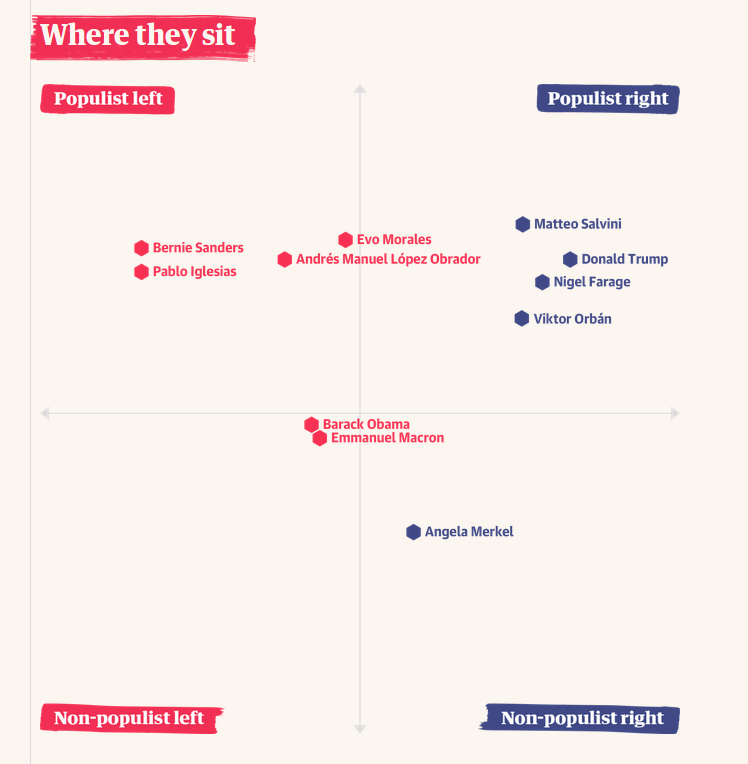This BBC article describes populism as follows:
The true populist leader claims to represent the unified "will of the people". He stands in opposition to an enemy, often embodied by the current system - aiming to "drain the swamp" or tackle the "liberal elite".
It also notes that while the term tends to be attached to the political right in Europe, that is not necessarily the case everywhere.
However the logical corollary of being anti-elitist is that, once elected, only the popular leader has moral authority; anyone who opposes the leader is automatically an enemy of the popular will and therefore lacking in legitimacy.
The elected populist therefore has a dilemma: does he (its nearly always "he") work with the elite who he once condemned, or does he continue to fight them? If he works with the elite then he becomes one of them, so therefore the only path is to "drain the swamp".
However the work of government must continue; someone must do the work. If the populist leader sacks the elite who used to do this, he has to replace them with new people. Naturally they will be his supporters because his rule is the popular will and he isn't going to appoint people who are opposed to the popular will.
Likewise any legal restrictions on the leader's power are illegitimate because they were put in place by the old elite in order to shackle the will of the people, and enforced by a judiciary who are part of that old elite; as a true representative of the real popular will, the populist leader has the moral authority to sack the judges and override or repeal the laws, and since his supporters now run the government he has the practical authority to do so as well.
Hence it is a short step from being populist to being a straightforward dictator who abolishes the rule of law.
So to answer the question, the opposite of "populist" is "liberal democracy under the rule of law".
